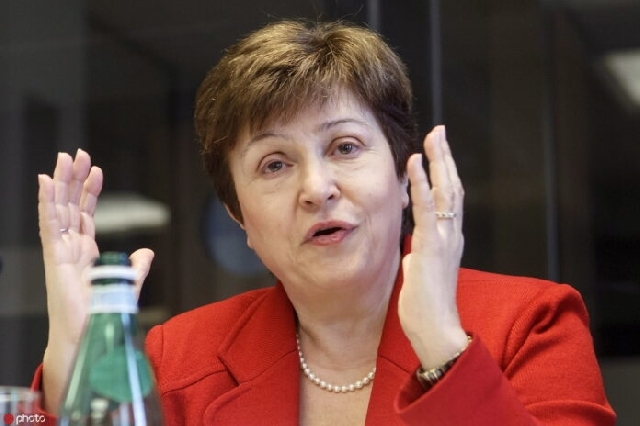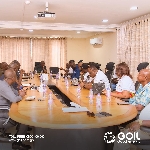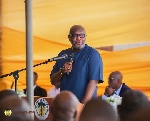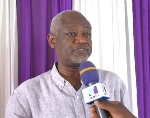Ghana, IMF reach staff-level agreement on new economic package
 IMF boss
IMF boss
The agreement, however, remains subject to approval by the IMF Executive Board.
Once approved, it will unlock a disbursement of Special Drawing Rights (SDR) 267.5 million, equivalent to approximately US$370 million.
This would bring Ghana’s total drawdown under the programme to SDR 1.708 billion, or around US$2.355 billion since May 2023.
In a communiqué released following the conclusion of a recent mission to Accra, the IMF noted that Ghana’s economic growth in 2024 exceeded expectations, largely driven by robust performance in the mining and construction sectors.
“The external sector has seen a considerable improvement, driven by solid exports, particularly gold and, to a lesser extent oil, and higher remittances.
As a result, international reserves accumulation has far exceeded the ECF-supported programme targets,” the Fund stated.
Despite these gains, the IMF acknowledged that overall programme performance significantly weakened by the end of 2024, citing notable fiscal slippage.
“Preliminary fiscal data point to slippages in the run-up to the 2024 general elections, on account of a large accumulation of payables. Inflation exceeded programme targets. Several reforms and policy actions were delayed across the fiscal, financial, and energy sectors,” the statement revealed.
In response, the new government has initiated corrective actions aimed at restoring programme credibility. These include an audit of the accumulated payables to assess their magnitude and origin.
Preliminary data suggests that the primary fiscal balance ended 2024 with a deficit of approximately 3.25% of GDP, deviating sharply from the original target of a 0.5% surplus.
To reverse course, the 2025 national budget now targets a primary surplus of 1.5% of GDP. In addition, authorities have introduced several public financial management reforms, including a strengthened fiscal responsibility framework and tighter expenditure control mechanisms.
The IMF team also held discussions with Ghanaian officials on a wide-ranging structural reform agenda focused on enhancing governance, increasing transparency, and improving the management of State-Owned Enterprises, particularly in the gold, cocoa, and energy sectors.
During their mission, the IMF staff engaged with key officials, including Finance Minister Dr. Cassiel Ato Forson, Bank of Ghana Governor Dr. Johnson Asiama, and other high-level representatives from government agencies and stakeholders.
The IMF expressed appreciation for the government’s continued collaboration and reaffirmed its commitment to supporting Ghana’s economic recovery and reform efforts.
Source: Classfmonline.com/Cecil Mensah
Trending Business

Vice President urges new customs officers to uphold integrity to drive economic transformation
16:19
GA/R: Kaneshie footbridge traders given end of April deadline to vacate
13:15
GOIL CEO engages dealers to strengthen collaboration and operational efficiency
11:29
NEDCo disconnects power supply to Cookclean Ghana Ltd and others over GH¢51,868 debt
09:29
COCOBOD CEO outlines strategic roadmap for Cocoa sector recovery in maiden staff engagement
15:06
W/R: IACG launches micro and small business clinics in Takoradi
08:54
Roads Minister Kwame Agbodza explores partnerships with local banks to fund road projects
07:27
Ghana, Czech Republic strengthen ties at Czech-Ghana Business Forum
03:31
Reality has caught up with the NDC – Dr Gideon Boako jabs
14:07
AfCFTA and WTO must be leveraged to counter U.S. tariffs – CDM
13:49




